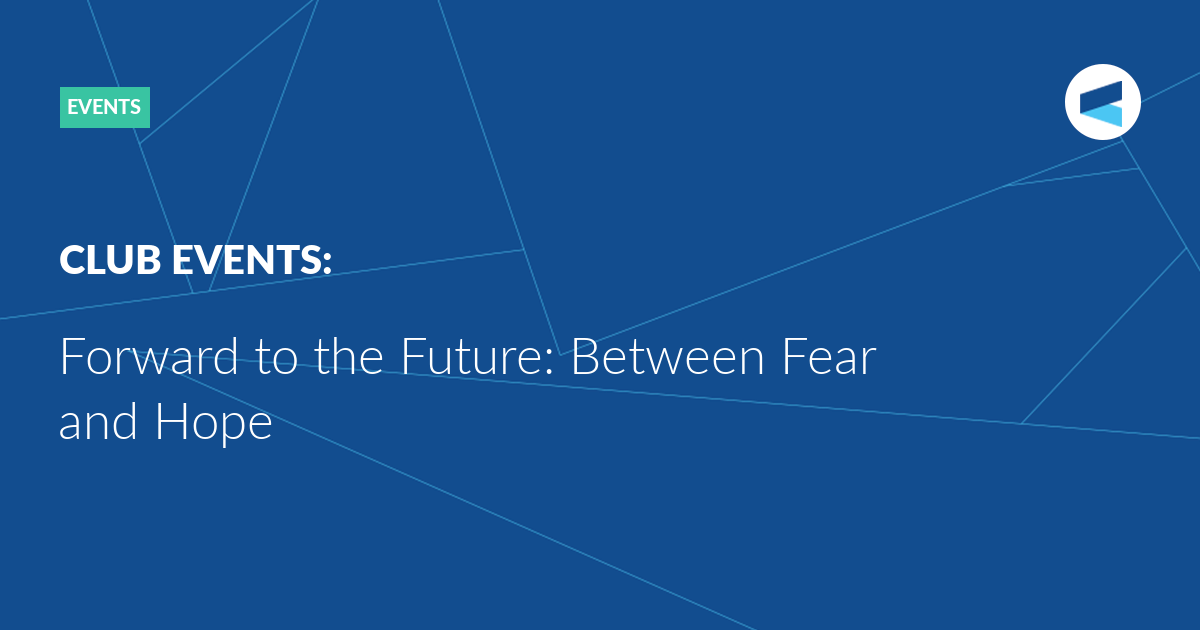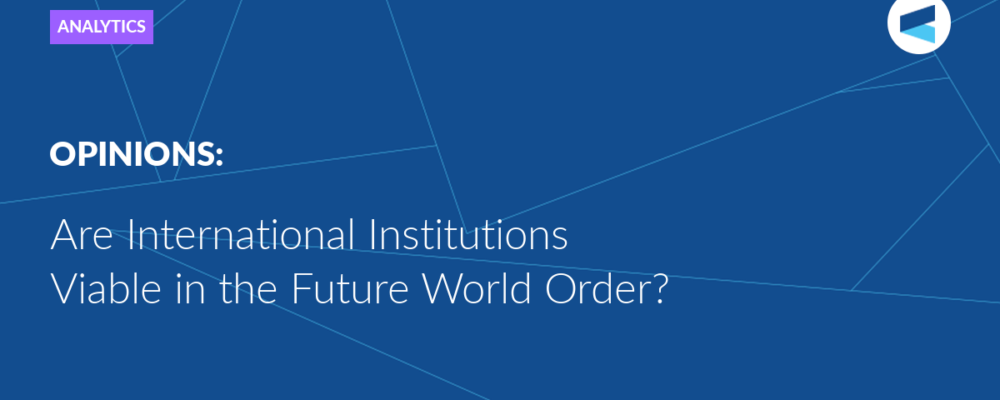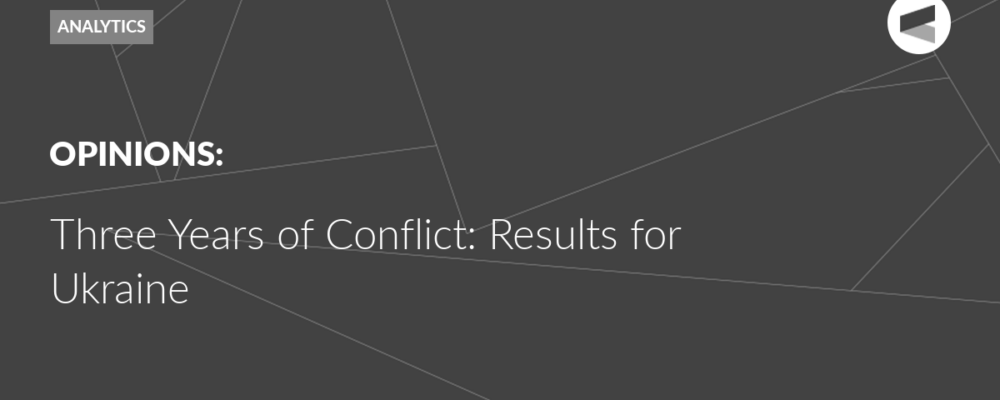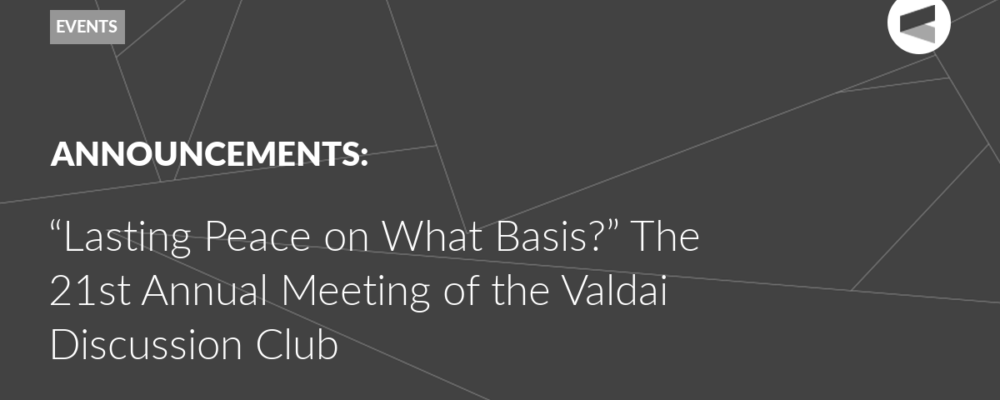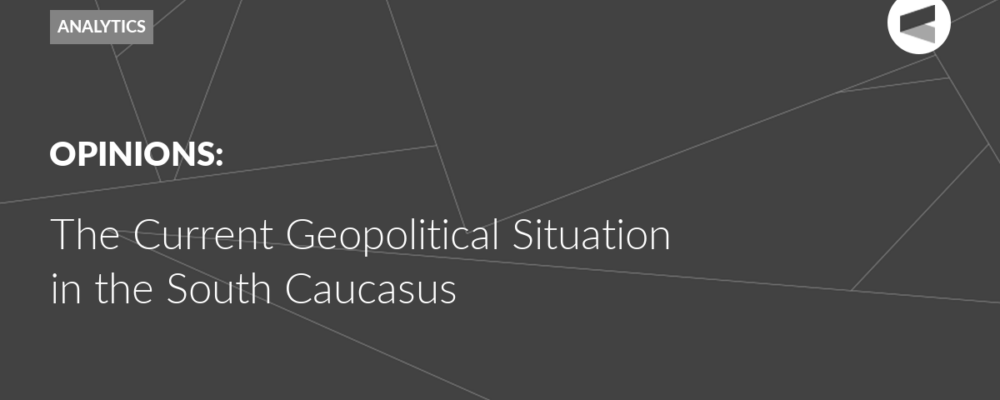The Valdai Club youth conference on March 5 consisted of three thematic sessions and an open discussion. As during the closed-door workshops held on March 3–4, which you can read about here, the participants in the open session were guided by the image of the future presented in the new Valdai Club report “Charting the 2040: Younger Generation Insight on the World in the Making.” But if in previous days the voice of the older generation of experts sounded louder, then on March 5 the new generation took the lead. And rightly so – because the future belongs to them.
Video recordings of the sessions are available on our VKontakte page. We will summarise the speeches of the participants of both the new and older generations in order to show how changeable our shared tomorrow is, and how we can change it for the better today, before it is too late.
The future of world politics in 2040
The 20th century taught us two things: to fear the future (it is no coincidence that many dystopian literary works were written then, and some of them turned out to be prophetic), and to hope for the best (the second half of the 20th century gave people techno-optimism, the confidence that the future will be more rational and comfortable). In the 21st century, we find ourselves between these two poles – between fear and hope. However, if you step back from the immediate picture, it becomes clear that one is inseparable from the other, said Fyodor Lukyanov, research director of the Valdai Club, who opened the Youth Conference. He noted that the Valdai Club report, prepared by a new generation of international relations specialists, does not delve into revolutionary changes: by 2040, the trends with which we are already dealing with now will develop further. In this work, what is important is not the description of today’s events or the prediction of tomorrow’s events, but a call to look at them from a different angle. That is, if we stop viewing conflict as a way of resolving issues, as we have done for centuries, then the future of international politics in 2040 may be different.
Andrei Sushentsov, the moderator of the first session, unironically compared this approach to the metaphor of “optimism according to Dostoevsky” – everything will end well, but it will rattle us. Judging by the speeches and questions posed by young specialists, a good rattling is really unavoidable.
For example, Adlan Margoev, Lecturer at the Department of Oriental Studies at MGIMO University, outlined a completely optimistic concept of the inevitability of multipolarity, which is discussed in detail in the youth Valdai report. It is based on two axes: the role of the state and the role of ideas. If you put a dial on this axis, then you can imagine that the clock hand, after moving from the beginning of the countdown – the formation of the post-war (after 1945) world order, passes through the unipolar moment and the current period of “global disorder”, and ultimately reaches the establishment of multipolarity, a world with new rules, norms and values.
However, one of the young Russian scientists, after listening to Margoev, questioned this folding model. Couldn’t the hands of this “world order dial” be turned back? At first, Margoev suggested in response that it was unlikely that countries that had already reached an acceptable level of development would want to lose everything they had acquired through backbreaking labour and return to the starting point. However, after some reflection, a slightly different conclusion was made: the League of Nations did not arise out of nowhere, but after the First World War, and the UN appeared after the Second World War. That is to say, a wellspring of popular support for the unification of nations with an active role for states is possible only after “global disorder” has slipped into global war. Only after everyone gets tired of it and understands that this is not a solution, cooperation will arise within the framework of a unifying, universal idea – multipolarity. It’s an interesting but frightening scenario, Margoev said. Now the question is different: how can we emerge from “global disorder” without a big war and rebuild the rules? “It’s time to write a new report,” he said forebodingly.
According to Vitor Moura, a Master’s Candidate at Tsinghua University and Director at the Brazil-China Chamber of Commerce (Bracham), there is no need to panic – everything will generally be fine if you are guided by the principle of tolerance. The struggle between great powers is not a new phenomenon, everyone is trying to push their interests, but the unipolar model does not satisfy most countries, and therefore multipolarity is inevitable. Tolerance is one of the important values of the new world, as it is diverse and heterogeneous.
International organisations were intended to be platforms for reaching a consensus, but today they are failing to fulfil this role as many players gain a voice. These organisations will have to be reborn to take into account the opinions of all countries, as is happening in BRICS.
According to Moura, it is important to look for moments that unite us. Trade is definitely the unifying basis of the new world. This world will be open to everyone, resources will become more accessible and partnerships will expand, which will solve many problems of individual countries, and the Global South will act as a stabilising force in multipolarity.
Tolerance is, of course, not a bad thing, noted Rupal Mishra, Senior Research Fellow and Ph.D. Candidate at the Centre for Russian and Central Asian Studies at Jawaharlal Nehru University, but there is also a more general concept – acceptance (this is one of the unifying values of Order 2040, described in the aforementioned report).
In the new world order, there will be no room for hegemony. In addition to global multipolarity, there will also be digital multipolarity, which does not imply geographical boundaries. Nations will compete to lead this digital world, but they somehow need to reach a consensus. Technology can bring people together or it can sow discord; it presents both an opportunity and a challenge. How can we achieve equality in the cyber economy? How can we ensure cyber sovereignty? These all remain unanswered questions. However, the world, according to Mishra, is one big family. “We believe in this. Compassion and understanding must reign throughout the planet,” she said.
Kang Tian, a graduate student at the Department of International Relations at Tsinghua University, sees the new world through the prism of war. War, Kang Tian believes, is an integral part of global politics; it is its language.
If previously combat operations were carried out at sea and on land, now they are moving into cyberspace, information wars are being waged, and artificial intelligence is coming into play. This is a new world, and here, in order to damage the enemy, you need to use a whole range of weapons. As they say, if you want peace, prepare for war. Victory will be for those who are able to adapt to change.
A representative of the older generation, Rasigan Maharajh, Chief Director of the Institute for Economic Research on Innovation at Tshwane University of Technology, noted after listening to the young participants that today we have the opportunity to create a different future. Multipolarity has already arrived, but a battle of ideas is coming. With any luck, in 2040 we will see a completely different picture. However, we must pay great attention to the moment in which we live, to what is happening here and now, and solve existing problems together with the new generation.
Technological development as a challenge and opportunity
People who pay in stores using their smartphones may not realise that there are other people in the world who don’t even have access to electricity. This means that for some, the future has already arrived, while others still have to live in the past. The latter does not seem to be so bad, judging by some of the reports from participants in this session.
Alexander Chekov, a researcher at the Centre for Euro-Atlantic Security at the Institute of International Studies at MGIMO University, spoke about the impact of scientific and technological progress on the military-political sphere. He noted three key trends of the future, without claiming, however, that they will determine the nature of future wars, or even less their outcome.
First trend: the digitalisation and intellectualisation of war. The world has reached a certain limit in the development of traditional types of various weapons. That is, in the foreseeable future, it’s most likely that nothing revolutionary will appear, and the development of existing types of weapons will follow the path of their improvement and intellectualisation. What was created many decades ago will remain relevant through the use of digital technologies (for example, the B-52 bomber). The role of humans in conducting military operations will decrease, but will not disappear.
Second trend: an increasing intensity of international confrontation, including in areas that do not relate to the use of force. This is cyberspace. The volume of hostile actions of states against each other in the digital space is several times greater than the volume of hostile actions of states fifty years ago. Given such a volume of hostile actions, can we talk about the absence of wars? If in your state thousands of hackers and programmers work every day to defeat another state, then isn’t it worth rethinking the concepts of war and peace?
The third trend is quite dangerous: the increasing effectiveness of first strikes. In any given historical era, there has been a temptation to solve some major international problem with the help of a small, victorious war. But if you imagine that this is a high-tech lightning operation using conventional weapons, which is characterised by minimal losses of the enemy’s own soldiers and civilians, the temptation grows exponentially. In the future, irresponsible politicians, having gained access to such technology, may seek a quick expected victory and risk dragging their country into a long-term international conflict with an uncertain outcome.
Thus, Chekov came to the conclusion that the development of technology in the military sphere has a destabilising effect. But he consoled us that in the future, nuclear deterrence, which prevents the outbreak of a global war, will most likely retain its significance.
A more general, but not calmer, picture was painted by Irina Kiseleva, an analyst at the Institute for International Studies at MGIMO University. The world, she says, is moving from universalism to pluralism. How will this manifest itself in the scientific and technological sphere? First, through fragmentation – each of the scientific and technological blocks promotes its own priorities. Second, through digitalisation – it leads, on the one hand, to an increase in the level of productivity; on the other hand, it creates the threat of a loss of state sovereignty. Third, through the development of science and technology, which intensifies international relations (the world becomes more interconnected, events occurring in one part of the world immediately affect events in other regions). Fourth, through adapting the world to a permanent crisis. Thus, in 2040 we will arrive at asynchronous scientific and technological pluralism, which will influence international relations.
Zhuowei Zhou, Ph.D. Candidate in International Relations at Tsinghua University, noted that along with the achievements brought by the progress of the fourth industrial revolution, the situation on Earth is also changing – resources are running out and new viruses are appearing. This means that the importance of science and collaborative research is growing. We need to work together, but it’s not easy—countries become isolated and don’t want to cooperate. Some try to slow down progress in others, wanting to maintain superiority, thereby slowing down the development of all humanity. So in the future, conflicts will have to be resolved not only during direct clashes on the battlefield, but also in cyberspace, and during battles for the minds of people, and in space.
Incidentally, Connie Rahakundini Bakrie, Director of the Maritime Department at The National Archives of Indonesia, spoke in detail about space to her young colleagues. According to her, space is a continuation of our world, and we need to overcome our rivalries, stop dividing into blocs, stop the space race and study it all together. “Dinosaurs went extinct because they didn’t have a space program,” she joked. She added that Russia has such a programme, which is nice.
The moderator of the session, Ivan Timofeev, cracked a joke in response and reminded everyone that in America back in the 1980s they came up with the idea of selling plots of land on the Moon. “Just imagine, you bought six hundred square meters on the Moon, and what next?” And then – new technologies should help.
Dialogue of cultures in a polycentric world
Without the new values (forgiveness, resilience, patience and acceptance) proposed by the authors of the Valdai Youth Report, it is impossible to build the world of the future, said moderator Oleg Barabanov, opening the session. But will they help overcome cultural differences?
One of the co-authors of the report, Nikita Neklyudov, Lecturer at Department of Applied International Analysis at MGIMO University, at first confidently said that a dialogue of cultures is inevitable. But he immediately noted that it is generally quite difficult for international relations specialists to imagine a dialogue of cultures and even more difficult for them to answer the question of how to ensure it. The fact is that in the scientific discourse, civilisations did not come to the fore at first – they thought more about strength, technology, institutions, military power, geopolitics, and always acted as derivatives. In the 1990s, Western researchers tried to imagine the world as value-oriented; they came up with a framework where ideological issues became central. We are talking about Francis Fukuyama with his idea that human progress as such has disappeared aside from institutions that transmit liberal values, and the “end of history” has come; and also about Samuel Huntington’s concept that there are many civilisations and they interact. Fukuyama himself later admitted that he was a little hasty in drawing conclusions. There are also questions for Huntington: why do civilisations conflict with each other and why do we even call civilisations ‘civilisations’? This is complex and polemic work, and certainly both concepts do not work in relation to the world order of 2040. There is also a normative component of international politics – these norms permeate politics and culture. However, not everyone believes that global powers are capable of imposing norms on sovereign players that are alien to them.
What would a dialogue of cultures look like? It is best to focus on the word ‘dialogue’. The identity formed around any given nation may change greatly by 2040. Dialogue will not only allow us to hear each other; it will also give us the opportunity to formulate our identity and our national interests. This idea of a critical school is now blossoming in political discourse. Perhaps this is the best way to move towards multipolarity, because it allows us to understand what strategic empathy is.
It is difficult for internationalists to think not only about the dialogue of cultures, but also about values, admitted Polina Kalugina, an Expert at the Centre for Analysis and Promotion of Research Results at MGIMO University, who is a co-author of the report. It is difficult because experts often forget that values are one step away from security, and it does not boil down to physical threats; it also has an ontological dimension – this is how the state feels about itself. The cornerstone of ontological security is stability in the state’s relations with counterparties.
The needle of that same “world order dial” that Adlan Margoev previously spoke about is also moving from universal values to individualism at the state level. A dialectical situation arises: there are national interests and global problems that can only be solved through joint efforts. This is fraught with conflicts.
In addition, the world is developing asynchronously, so multipolarity, progress and development will not come to different parts of the world at the same time – the “launching pads” of different countries are too different. This also creates risks. Therefore, the report proposes communicative values as a unifying platform. They will help develop strategic empathy, the task of which is to get rid of fear of the unknown. Dialogue will help to establish cooperation.
Zhang Huimin, Ph.D Candidate at the School of Politics and International Relations at East China Normal University, the author of the values section in the Valdai Report, noted that it is not yet clear according to which scenario the world will develop – history is also asynchronous. The popularity of Western civilisation can be explained by the fact that for a long time, it absorbed the experience of other countries and civilisations. As a result, this led to universalism, forming a “melting pot” that united the experience of other countries. Now this model has begun to fail – the values of other countries are perceived as a threat in the West.
The simplification of the value system leads to the illusion that the world is easily controlled and predictable. This is fraught with problems for future generations – no one living today wants to take responsibility for what is happening, the risks that young people will have to face in the future are not taken into account.
Therefore, in turbulent times, sustainability is especially important; the main value for today. One Chinese writer said: if life weighs on your shoulders and you fall under this load, then you need to do what a child would do – get back on your feet and start all over again, again and again. The world has the strength to rebuild and the courage to start over. But how can we ensure that the values listed in the report do not become utopian? We need to practice them, make them part of our lives.
After listening to the speakers, Nelson Wong, Vice Chairman & President at the Shanghai Centre for RimPac Strategic and International Studies, noted with some sadness that when he was young, he also believed that he could change the world. However, now it seems to him that this is impossible. Nevertheless, there is a chance to lay the foundation for mutual understanding by adopting the motto ‘we are different, but we are together’.
Valdai 2040: a look into the future. Open discussion
The open discussion that concluded the three-day Valdai Youth Conference took the form of a provocative blitz survey. Questions were asked by Andrei Sushentsov and Fyodor Lukyanov; young international specialists from more than sixty countries answered and argued with them. We share with you the most valuable thoughts collected from the youth.
How the new generation sees the world multipolarity
If multipolarity is interpreted as permissiveness, then there will be no peace. Now we are in such a stage of permissiveness, or “global disorder”. Order is possible only through cooperation and dialogue. If the “disorder” drags on, a global war will begin, possibly a nuclear one, and then there will be a return to UN 2.0.
Multipolarity will come when it dominates in all spheres – technological, military, economic, and so on. If one of the poles has a monopoly in one of the spheres, then it will not agree with the onset of multipolarity.
Multipolarity is the first step towards a more just world. Countries that did not have voting rights will now have them.
The move towards multipolarity is right, although there is disagreement about what that means. World order is not the same as world structure. World structure is the distribution of responsibility, and world order is the distribution of forces (meaning military capabilities). The current world order is quite compatible with instability.
Multipolarity promotes common sense in international relations. Strong states can help weaker ones.
With the increase in the number of centres in a polycentric world, the importance of the responsibility that each of the poles assumes will increase. Responsibility is associated with reputation. When the centres come face to face, each will evaluate each other’s actions on the world stage and a new system of rules will be formed.
War
Previously, conflicts were more open, but now we often find ourselves in a “gray zone” – new areas of confrontation have appeared (for example, information). The concept of the world is being transformed and it is worth rethinking its understanding.
Conflicts are inevitable. US hegemony ensured peace for the Americans and some Western European countries, but all this was accompanied by many armed clashes. To build a new world, you will have to fight an enemy who does not intend to give up without a fight and will resist the onset of multipolarity. We need to think about the values that we can offer to other states to fight this enemy.
Modern politics can be summed up by a quote from Niccolò Machiavelli: “The end justifies the means.” Non-interference is impossible. Institutions must regulate conflicts, but the rules of the game are set by the hegemon.
Ideas and values
In recent years, countries have been losing trust in each other. If we want to achieve stability in international relations, we must achieve trust, and it is formed by our moral values.
The world is unique, and everyone has the right to development. There is a difference between what’s universal and what is shared by everyone; we must respect everyone’s cultural identity. By sharing the common, we will value and respect the private.
Values cannot serve as the basis of multipolarity – it is impossible to accept all other people’s values or develop values that unite everyone at once. It is better to rely on principles. he main principle of world politics is non-interference. Then we will avoid at least those conflicts that begin with good intentions.
We need to promote tolerance and the acceptance of other cultures.
International institutions
With the development of multipolarity, international institutions will also develop.
For small and weak states, international organisations are very important because they help in solving problems.
The smallest countries should have a voice in international organisations. Large states should help small countries participate in international relations.
International organisations have somewhat compromised international rules, so they must begin to work towards creating a multipolar world.
Technology and artificial intelligence
Multipolarity in the technological sphere is asynchronous. It is important for states to create their own niches in developing areas – this will determine the future. Technologies will strengthen sovereignty.
Large corporations abuse their monopoly status. States need to build cyber sovereignty.
There is a lot of talk about developing the rules of the game in politics. It is necessary to do the same in the field of economics and in the digital sphere.
So far, artificial intelligence cannot compete with human intelligence. But in the near future, an intelligent type of AI will appear that will be able to take an equal position and influence international politics.
At the end of the open discussion, project leader Timofey Bordachev said that the Valdai Club’s appeal to young and talented authors does not end with the Youth Conference; it is just the beginning. Those interested can take part in the new project “Valdai – New Generation”. The collection of applications has already begun, all the details are available on the website. “During March, the Valdai Club will accept applications. After this, reviewers will become involved and review these applications. We will coordinate the project in the future and help its participants,” he promised. Fyodor Lukyanov, in turn, optimistically noted that the Valdai Club in the coming years will work to ensure that natural intelligence never gives way to artificial intelligence.
The Valdai Discussion Club was established in 2004. It is named after Lake Valdai, which is located close to Veliky Novgorod, where the Club’s first meeting took place.
Please visit the firm link to site


